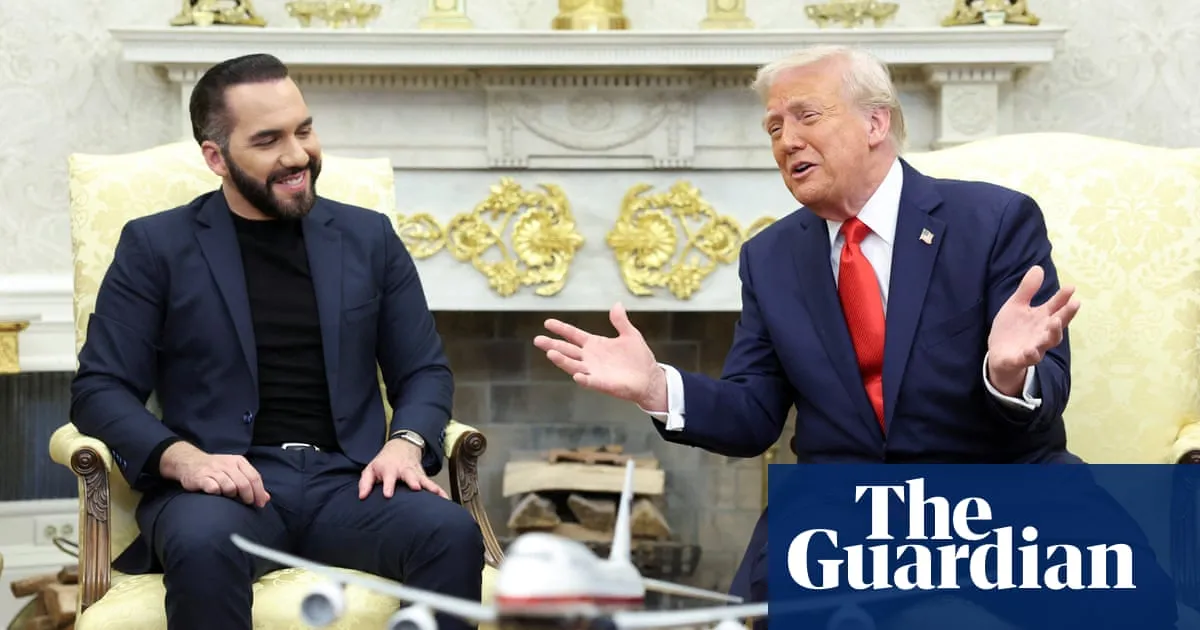
The Trump administration has recently initiated direct communications with the Salvadoran president, Nayib Bukele, concerning the detention of Kilmar Ábrego García. This situation arose after García was wrongfully deported to a notorious prison in El Salvador. According to two sources familiar with the discussions, the specifics of these communications remain unclear, especially since numerous Trump officials have indicated that the administration is not interested in facilitating his return to the United States. This stance comes despite a ruling from the U.S. Supreme Court mandating the administration to “facilitate” García's release.
Sources report that the outreach to President Bukele produced no new developments, as he reportedly rejected the administration's attempts for dialogue. The Supreme Court had previously ordered that García be returned to the U.S. to undergo immigration proceedings, as he would have done had he not been sent back to El Salvador. The discussions seem to have been an attempt by the Trump administration to create a facade around the ongoing legal case, possibly to establish a paper trail for reference in front of U.S. District Judge Paula Xinis. Judge Xinis had previously ruled that Trump's intervention in the Oval Office was inadequate.
Following the Supreme Court's ruling, García has been moved from the Cecot, a mega-prison known as a terrorism confinement center, to another facility in El Salvador. The Trump administration's efforts have been marked by an evident reluctance to comply with the court's ruling, a trend that has been increasingly apparent over the past few weeks. Senior advisers within the Trump administration appear determined to use this case to test the bounds of presidential power, particularly in asserting that the courts lack the means to ensure prompt compliance with their orders.
During a cabinet meeting on Wednesday, U.S. Secretary of State Marco Rubio stated that he would “never tell” whether he had been in contact with Bukele. CNN previously reported that Rubio had indeed engaged in discussions with the Salvadoran president. Further, the New York Times indicated that a diplomatic note had been sent to Bukele regarding the matter. Rubio, sitting next to Trump, emphasized the executive branch's authority over foreign policy, dismissing the judge's role in the process. “I would never tell you that. And you know who else I’ll never tell? A judge,” Rubio remarked.
In an interview with ABC News aired the night prior, President Trump suggested that he “could” instruct El Salvador to return García. However, when prompted about the possibility of calling Bukele to demand “send him back right now,” Trump deflected responsibility, stating, “I’m not the one making this decision. We have lawyers that don’t want to do this.” His comments may complicate matters for the Justice Department as it prepares to answer challenging questions from García’s lawyers regarding the administration’s compliance with the Supreme Court ruling.
Trump's assertion that his lawyers advised against contacting Bukele could expose the Justice Department to intense scrutiny over whether they are willfully ignoring the court order, potentially leading to charges of contempt. Following a closed-door hearing on Wednesday in federal district court in Maryland, Judge Xinis denied the Justice Department's request to extend a pause in discovery proceedings, mandating responses to inquiries from Ábrego García’s lawyers by this Friday.